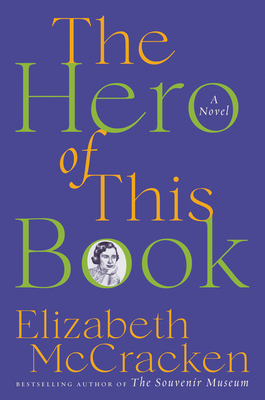In 1918 Dorothea Lange left her home in New Jersey to discover the world. She got as far as San Francisco. California became her home base where she honed her skill as a photographer. When her portraiture business collapsed in the Depression she became a documentary photographer for the Farm Security Administration. From migrant workers and farmers in the 1930's to Japanese internment camps in the 1940's, her work is among the most recognizable of the 20th century. Lange's life story is the subject of nonfiction biographies and an American Masters film. Elise Hopper's novel stays true to the facts with a deft reimagining -- first person narration, looking back from 1964.
Lev Rosen was a featured author at the Immersive Historical Fiction session at the 2022 ALA Annual Conference. I read the ARC on the flight home.
Immersive indeed! San Francisco, 1952: Evander "Andy" Mills is yanked out of the closet in a raid (actually, the men's room at a bar) and loses his job/career as a cop because homosexuality is illegal. He isn't unemployed for long, however. Irene Lamontaine, founder of the famous Lamontaine soap factory was found dead in her mansion. Her partner/wife Pearl Valdiez suspects foul play. Andy is pulled into a web of intrigue in the very unconventional household. A little Agatha Christie, a lot of noir, and insights into the challenge/danger of being gay in the 1950's.
If you've been actively involved in a mainline Protestant Church you'll recognize and appreciate every page of Michelle Huneven's novel about the fictional Arroyo Unitarian Universalist Community Church and the search for its next senior minister.
Food writer and once-seminarian Dana Potrowski is a reluctant member of the search committee. She becomes the secretary and her documentation becomes a novel that becomes this novel.
She describes all the stages of group dynamics: forming, storming, norming and eventually performing. Diversity? Check: long-time members; young mom who grew up in this church; young dad new to the denomination; member of the wealthiest benefactors; congregational leaders; IT geek and bell choir director; and the narrator ( mid-50's white hetero woman, , food writer). Denomination guidelines, consultants, retreats, profiles. The initial candidate pool. Refining the candidate pool. Agreements and disagreements. And, finally: offer made, congregational vote, and (not without controvery): a selection. ........ And did I mention the recipes? (I will add The Pledge Drive's Fiesta Chicken to my repertoire.)
The book cover states that this is a novel. The author writes that this is not a memoir. But this contradiction is the best way to pay tribute to a woman whose own life had many contradictions. The unnamed narrator and her unnamed mother are Elizabeth McCracken and Natalie Jacobson McCracken. (I looked up Natalie's obituary and the details are there.) Physical limitations and personal eccentricities exacerbated by age contradict (again) a brilliant mind and a successful career (see that obituary https://www.bu.edu/articles/2019/the-...). McCracken also remembers her equally brilliant and idiosyncratic father Samuel.(https://www.bu.edu/bostonia/winter-sp...)
I can see how Natalie and Samuel inspired Bertha Truitt and Leviticus Sprague, the stars of McCracken's wonderful novel Bowlaway. We can only hope that our lives will be so richly remembered.




I greatly appreciate your book reviews!
ReplyDeleteThis is great; thanks!
ReplyDeleteNice collection of books
ReplyDelete